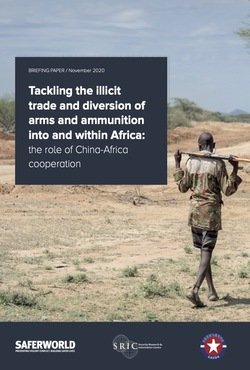By Marcena Hunter
Exploitation and criminal capture of the ASGM sector is multifaceted and complex.
The development potential of the African artisanal and small-scale gold mining (ASGM) sector is undermined by criminal consortia across the continent who exploit it for economic and political ends at the expense of vulnerable populations. Yet, much of the discourse around ASGM in Africa has not directly addressed criminality, instead being framed within development or conflict frameworks. In an effort to fill this gap, this report seeks to unpack how criminal consortia manipulate ASGM and associated gold flows to secure illicit rents and capture the sector. The findings highlight the need for nuance, especially regarding the role of informal and traditional actors in the sector. Through a more holistic understanding of the challenge, policymakers will better be able to identify and combat criminal consortia in ASGM.
ENACT - Africa, 2019. 44p.







